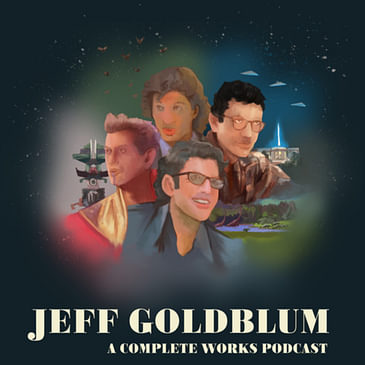It's been a while, but we're back to cover another Jeff Goldblum movie! Goldblum takes the center role in the experimental animated documentary THEY SHOT THE PIANO PLAYER, about an American journalist investigating the mysterious disappearance of a legendary Brazilian musician.
Stay tuned for info about our Roy Scheider season, which kicks off next week!






